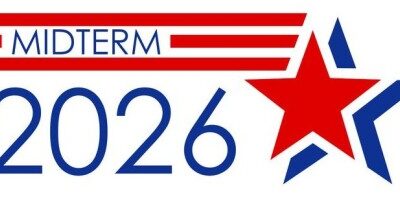When “Stay In Your Lane” Is Wrong
Technical policy questions often involve ethical political questions that the public must have a say in
As vaccination for the coronavirus in the United States ramps up, I want to take a look back to a policy dispute over the initial plans for vaccine distribution at the end of 2020 and the beginning of 2021 – in part because that fight (like “follow the science,” which I blogged about recently) also reveals some underlying principles in environmental law specifically, and in the use of law and science more broadly.
As the initial vaccine distribution plans were being debated at the federal and state level in the United States, a key question was how to set up prioritization for what would initially be limited supplies – a particularly fraught question given that virus infections, hospitalizations and deaths were all peaking. One perspective emphasized prioritizing older people, who had much higher death rates than any other sector of the population. Another perspective emphasized prioritizing essential workers – in part because this group of the population had much less ability to control their exposure to the vaccine (unlike many older people), because this group was disproportionately people of color who had themselves suffered disproportionately from the impacts of the pandemic, and because essential workers might be an important pathway for transmission of the virus to more vulnerable populations.
It isn’t important for purposes of my discussion which side of this (difficult) discussion is right – even today, we debate these issues and states like California have switched back and forth or balanced between these prioritization options. What matters is that the debate between these two perspectives, while it necessarily draws on and includes epidemiological issues such as which option might overall reduce death rates from the virus, also necessarily draws on and includes value choices. Is it important to achieve equitable results, particularly for populations that have been disproportionately impacted in many ways from the epidemic? It is important to maximize the speed of vaccination and reduce (even marginally) the total number of deaths from the epidemic? It is important to use a prioritization system that is simple to apply and thus is unlikely to be gamed by sophisticated actors? The answers to these questions depend on difficult ethical choices about equity, minimizing harm, and preventing antisocial behavior. Of course, in an ideal world we would achieve all of these goals – and I don’t think any of the participants in these debates would disagree in the abstract with any of these goals. But how to prioritize among these goals, and how to make the tradeoffs between them, were the real questions and presented difficult problems.
In the public debates over these questions, you had contributions from public health officials (including the guidance provided by the Center for Disease Control’s own advisory committee), as well as various other public figures such as politicians and journalists. However, some public health experts dismissed arguments made by those outside the field of public health on the grounds that those outsiders should “stay in their lane” and not intervene in debates over vaccine prioritization.
But this is precisely the wrong approach to take when one is dealing with a technical issue that is necessarily intertwined with ethical and value choices – as is the case with most significant policy questions that involve science. As I noted in my prior post, science can rarely provide definitive answers as to key policy questions – though of course it can provide critical and vital information for deciding those questions. But answering the policy questions also necessarily turns on value choices.
“Stay in your lane” rhetoric implies that only public health experts have the capacity to debate not just the relevant science, but the values intertwined with those value choices. But that is false. Values are a public matter, and are appropriately debated in a public, political space. Our policy choices based on those values necessarily require a public debate, and will draw on a wide range of expertise – in this case, philosophers, ethicists, economists, and journalists all might have useful information to contribute, as would any member of the political community.
An example from the context of environmental law involves the impacts of hazardous waste sites on neighboring communities. In public and legal debates over whether to clean up these sites, how much to clean them up, and who should be liable for clean up costs, a range of experts would argue for less stringent clean up standards, based on technical analyses of the risks posed by the sites and clean up costs. Neighboring communities would often argue for much stricter clean up standards. Justice Breyer jumped into this debate, arguing for less strict standards on the grounds of both economics and public health. Again, the debate here includes value choices. Should society spend large amounts of money to reduce risks from hazardous waste sites to neighboring communities, when that money might be used to address other important social goals? But shouldn’t society also protect people who had no choice or say as to whether they would be exposed to harmful chemicals?
I want to emphasize here that I am not arguing for empowering non-experts to opine on technical matters where they are clearly wrong. Good policy in the law and science context does depend on good science. To take an easy example, Professor Richard Epstein argued against aggressive efforts to contain the coronavirus in the spring of 2020 because he claimed the virus would naturally evolve to become less virulent – and he predicted that even without intervention only 5,000 people would die from the virus. Prof. Epstein may (or may not) be a brilliant legal scholar (he is a law professor) but he is not an epidemiologist, and it showed, as his prediction was woefully flawed. Unfortunately, the Trump Administration drew on Prof. Epstein (and other similarly problematic advisors) to shape its deeply flawed initial response to the crisis. (Ironically, Prof. Epstein himself, when challenged on his predictions in an interview, resorted to credentialism and denigrated his interviewer as just a journalist.)
But where values are relevant, and the focus is on how those values should inform our policy making, “stay in your lane” is the wrong choice. It locks the public out of decisionmaking, and empowers only a certain fraction of the expertise that might be relevant for high-stakes policy decisions.






Reader Comments